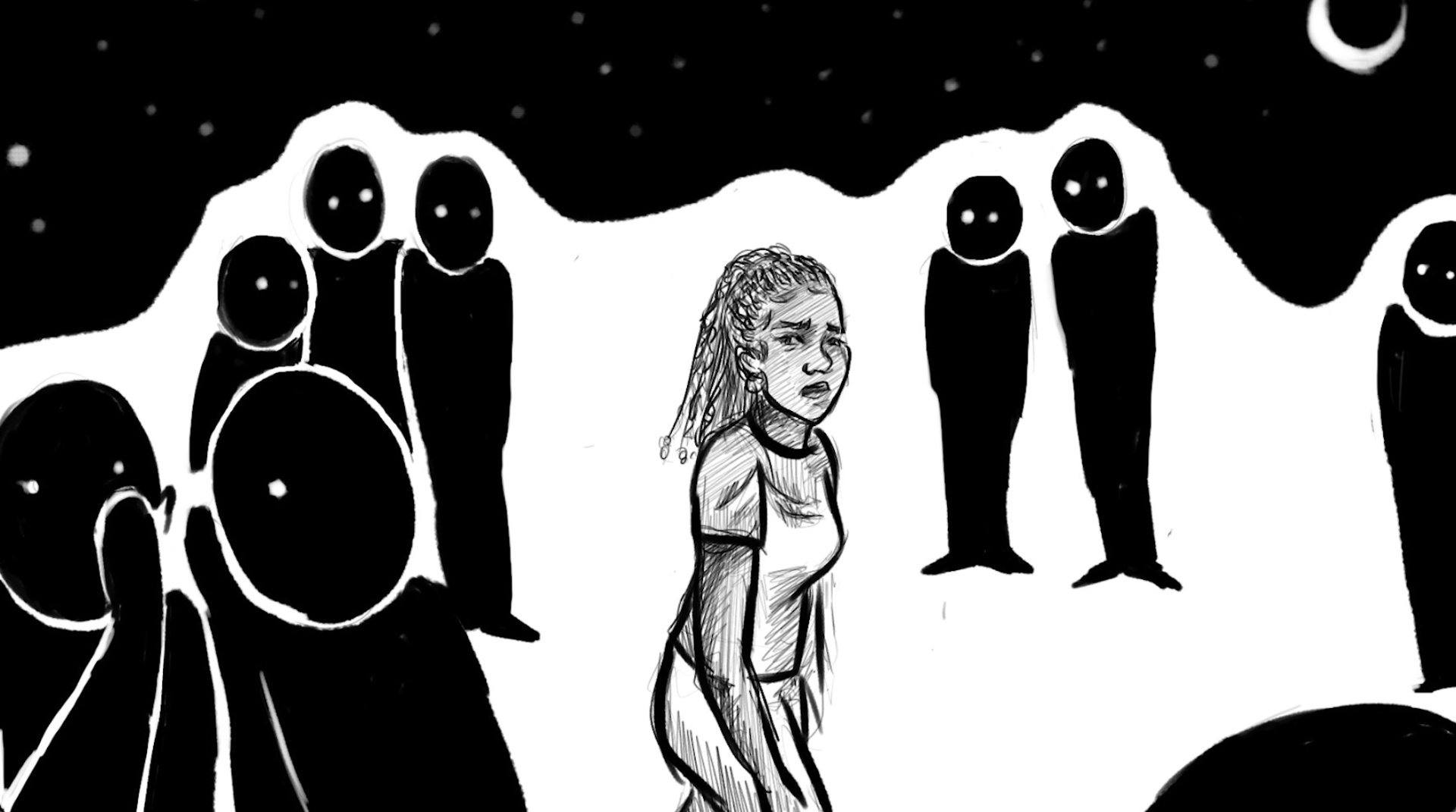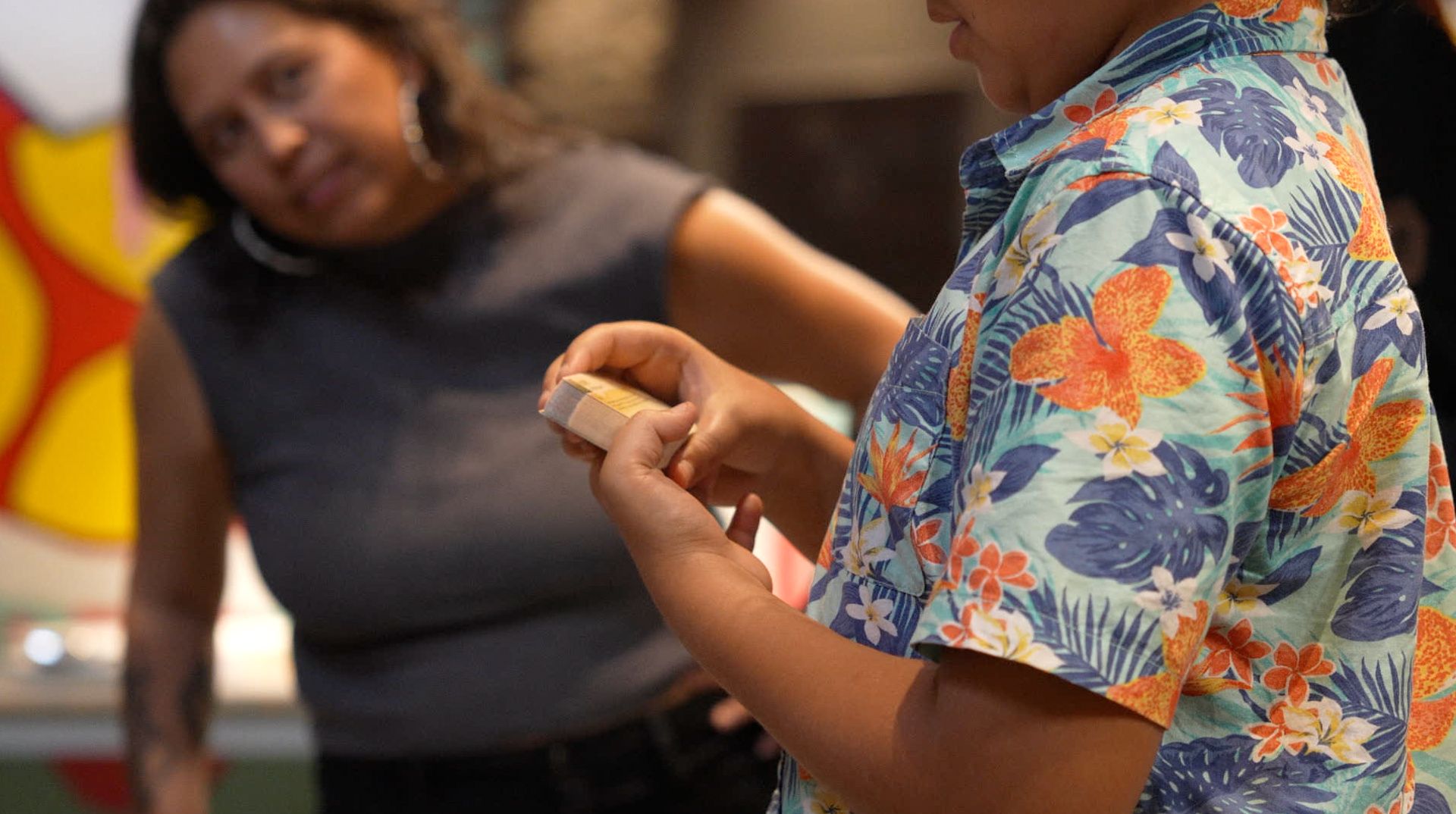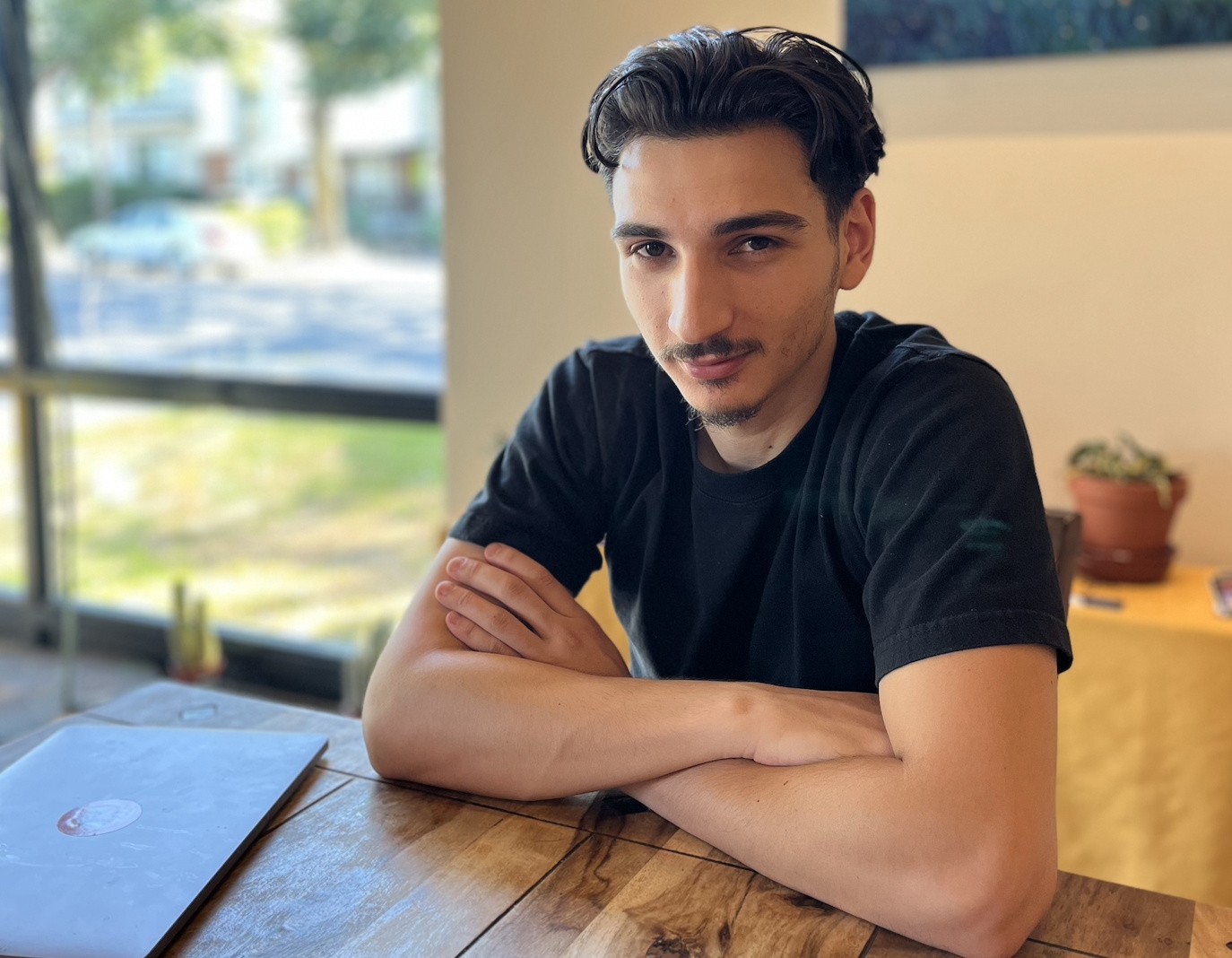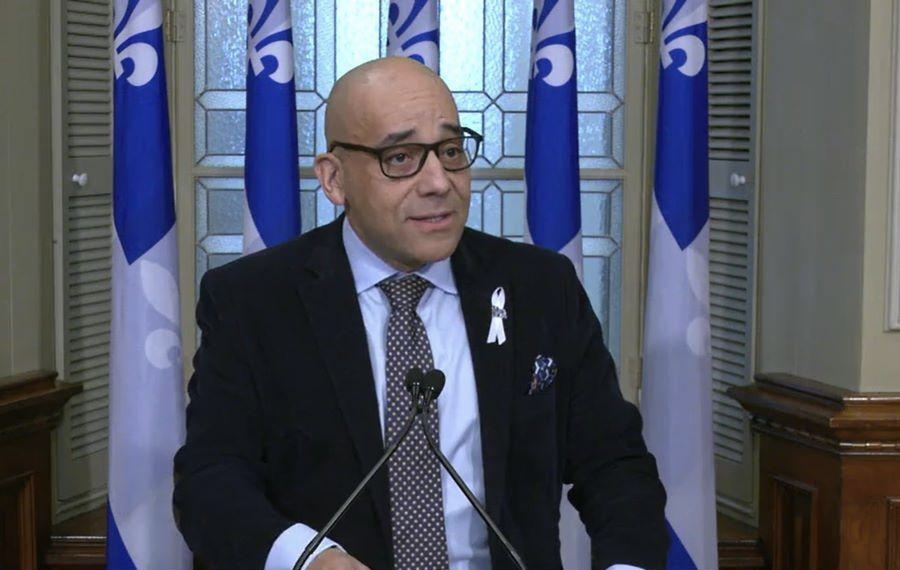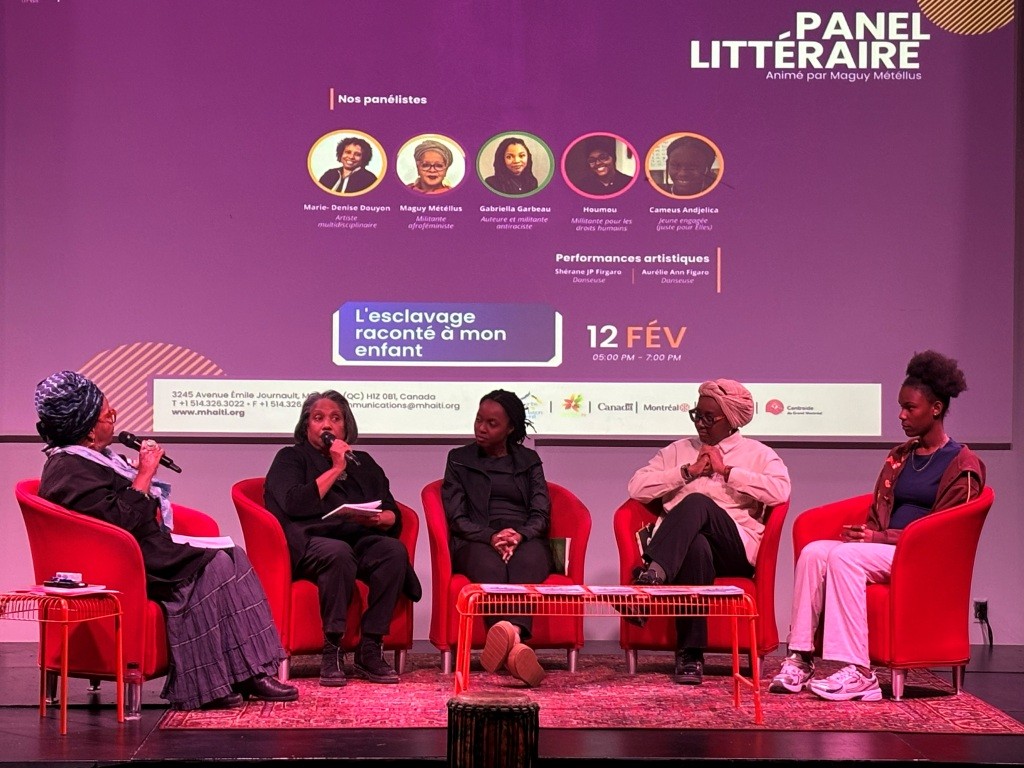The new cabinet, unveiled on May 13, respects gender parity and includes several elected officials from diverse backgrounds. At first glance, the Liberal government seems to want to continue its predecessor's efforts regarding inclusion. However, one absence has not gone unnoticed: that of the Ministry of Diversity, Inclusion and Persons with Disabilities, which has simply disappeared. This decision is surprising, but for many in the field, it merely confirms a trend observed repeatedly: a political regression on equity issues. A report.
Michelle Edwige Jeanne Martineau, a political science doctoral student and member of the Interdisciplinary Research Centre on Diversity and Democracy (CRIDAQ), doesn't hide her disappointment. "I really feel like we're going backward," she regrets. "Everything that was put in place since George Floyd is turning to dust... As if it was all for nothing, in the end," she says over the phone.
Indeed, on May 25, 2020, George Floyd's death under a police officer's knee in Minneapolis caused a global shockwave. A few months later in Canada, the death of Joyce Echaquan – an Atikamekw woman from Manawan – in a Quebec hospital rekindled calls for racial justice and equity. These tragedies then pushed several governments to review their inclusion policies.
But five years later, these commitments seem to be losing steam. In the United States, Donald Trump's return to power was marked by the halt of civil rights investigations and the suppression of pro-diversity initiatives in federal institutions. And last Wednesday, just days before the anniversary of George Floyd's death, the U.S. Department of Justice announced the abandonment of prosecutions against the Minneapolis and Louisville police departments, despite accusations of violence following the deaths of African American citizens in 2020.
For Michelle E. J. Martineau, the abolition of the Ministry of Diversity, Inclusion and Persons with Disabilities in Canada is no coincidence: "It's the Trump effect. We thought Canada was immune to this influence, but this decision is a strong signal. It calls into question the progressive policies adopted in recent years, particularly those aimed at recognizing the rights of ethnic, racialized, neurodivergent, or disabled minorities."
According to her, Canada is indirectly subjected to ideological pressures from its southern neighbour. "Subtly, the policies decided in the United States have repercussions here. We can wonder if there is real independence in our political choices," she muses.
And even though Canadian voters re-elected the Liberals, she notes a change and a break from the Trudeau government. "It's not to say we have a Trump 2.0 here, but clearly, the current government is taking a very different stance from its predecessor, who focused on equity, diversity, and inclusion policies."
For the expert, who has previously worked as an Equity, Diversity, and Inclusion (EDI) consultant, this suppression is not a surprise; it merely reveals the flaws of an already weakened model.
"Behind the inclusive language and superficial initiatives, the field has long been subject to criticism," she explains. "EDI consultant positions have been heavily questioned due to a blatant lack of representation. These roles are rarely filled by people from diverse backgrounds. It's often the dominant groups who benefit from them."
She also denounces a system that reinforces "tokenism," meaning a tendency to recruit racialized individuals to meet a quota, without actually addressing the fundamental structures of institutions. "Take universities. Have their structures changed? No. We give the illusion of change, but has there been a true decolonization of minds or organizational practices? I strongly doubt it."
"Canada Built an Image as an Inclusive State to Distinguish Itself from the United States or England"
Sociologist Fahimeh Darchinian, a specialist in racial issues, also shares this observation. "EDI is a recent tool integrated into the Canadian multicultural discourse. It helps polish the image of institutions but is not enough to eliminate systemic inequalities."
"It offers an impression of progress while maintaining the status quo," she continues.
She traces the historical evolution of these discourses to explain her point. "After World War II, biological racial theories lost their credibility, so Western societies had to adopt new narratives to continue legitimizing racial hierarchies. That's when diversity and inclusion emerged as instruments of governance, capable of channeling criticism without challenging the established order. Posts are created, and public commitments are multiplied, but the structures that produce inequalities don't budge."
"Canada built an image as an inclusive state, particularly to distinguish itself from the United States and England, but this image hides the reality: processes of racialization persist, as do anti-Black, anti-Indigenous, anti-Muslim, and anti-Asian racism, whose extent we saw during the pandemic."
"Today, several researchers want to highlight how these diversity policies contribute to a new form of governmentality. A way," she says, "to defuse social tensions while preserving power structures."
But with the international political context, particularly with the pressures exerted by the neighboring country, criticism becomes more complicated: "With the rise of figures like Trump and their openly racist discourses, we feel a kind of regression. And that pushes some to moderate their criticism of EDI because they fear that criticizing these tools will end up reinforcing far-right discourses."
Playing on the paradox, the sociologist insists: "Even if EDI has weaknesses and experiences setbacks, we must continue to criticize it and seek to evolve it. Not doing so would be to accept that inequalities persist," she concludes.
Canadian Identity and Universalism: Diluting Diversity Issues
Contacted by La Converse, the Prime Minister's Office confirms that the functions of the former ministries of Diversity, Inclusion and Persons with Disabilities will be distributed between two portfolios.
The Minister of Employment and Social Development will be responsible for disability-related issues, while the Ministry of Canadian Identity and Culture will handle diversity and inclusion matters.
Saffa Chebbi does not hide her indignation at this news. For the activist and founder of the Quebec Observatory of Racial Inequalities (OIRQ), this decision is not just an administrative reorganization. It is a strong political act.
"It's a form of disengagement from the struggles of marginalized groups, and it weakens the already fragile symbolic and concrete protections of these groups in a context of rising inequalities and anti-rights movements worldwide."
"A dedicated ministry means its own budget, clearly defined priorities, targeted policies, and, above all, a voice in the cabinet to defend the rights of the groups concerned," she insists.
Reducing these issues to mere sub-portfolios within an already overloaded governmental apparatus would, therefore, render them invisible.
But what worries the activist most is the very choice of the ministry that will now be responsible for these issues: "Placing questions of racism or exclusion under the label of 'identity' reduces them to simple cultural or identity issues, whereas they are fundamentally social, economic, and structural inequalities. These issues concern housing, employment, health, security, education – in short, concrete rights and real living conditions."
For Ms. Chebbi, this approach risks not only diluting public policies but also fueling tensions around identity debates, particularly in Quebec.
"In a context where discussions on secularism, immigration, francization, and 'living together' are extremely polarized, linking equity issues to notions of 'identity' unnecessarily complicates the debate and distracts attention from the real systemic inequalities experienced by many groups daily."
The Quebec Case: Inclusion Efforts Reserved Only for Immigrants
In Quebec, the question of inclusion and integration is also too often approached from the narrow angle of immigration, notes Ms. Chebbi. Indeed, it is the Ministry of Immigration, Francization and Integration that handles this file, an approach she considers problematic in several respects.
"Firstly, it reduces equality issues to those of newcomers, as if discrimination and social inequalities only concerned immigrants. In this logic, integration often boils down to a francization process, presented as the key to social and professional integration."
But this vision is reductive: "It ignores the reality of thousands of racialized Quebecers born here, perfectly francophone, who continue to face systemic obstacles: hiring discrimination, income gaps, overrepresentation in poverty statistics, racial profiling, etc."
Furthermore, although the Quebec government has appointed a person responsible for the Fight Against Racism – Christopher Skeete –, his mandate suffers from significant structural limitations, she continues. This position is not supported by a dedicated budget, which considerably reduces its capacity for action. Worse still, this responsibility is subordinate to other economic portfolios, thus relegating the fight against racism to a secondary issue in the government program.
And for doctoral student Michelle Martineau, this redirection of diversity issues towards the Ministry of Canadian Identity and Culture marks a return to universalism, a vision under which differences are not seen, but which invisibilizes inequalities. "What does Canadian identity mean? Do we still recognize the plurality of cultures, affiliations, lived realities? Or are we recomposing a smooth national narrative, disconnected from the struggles waged for decades?"
She continues: "We had acknowledged, begrudgingly, the existence of systemic racism. But now, it's as if we're saying: the fad is over, we're refocusing. And we're sweeping all this diversity under the rug."
Fear of Budget Cuts
Beyond political symbols, the doctoral student fears a real weakening of institutions, particularly in higher education, which is already fragile due to recent compressions.
"We are seeing budget cuts in universities and CEGEPs, notably due to a decrease in international student enrollments. This has direct repercussions on staff, and some EDI-related positions are simply at risk of disappearing," she warns.
"Either they will be renamed, relegated to less influential roles, or they will simply be terminated for budgetary reasons. And the people concerned will have to retrain. We have the impression of reaching the end of a cycle."
Saffa Chebbi, for her part, highlights the direct consequences of these setbacks on the community level. She recalls that the Quebec Observatory of Racial Inequalities (OIRQ) was founded thanks to an important federal program: the Action and Anti-Racism Program (2019-2022), managed by Canadian Heritage.
"The OIRQ came into being thanks to these federal funds. It was an ambitious program that allowed many organizations to emerge or strengthen their actions."
But today, the activist is concerned about the disinvestment of federal and provincial governments: "Quebec already offers very few opportunities to support these issues. So, if we also lose this support at the federal level, an entire ecosystem of organizations is put at risk. There are simply not enough resources to stay afloat."
Following the abolition of the Ministry of Diversity, Inclusion and Persons with Disabilities, organizations may be forced to turn to private funds, at the risk of disappearing.
As for university institutions, they will have to await the tabling of the federal budget, scheduled for this autumn, to learn the federal government's intentions regarding them.




.png)
